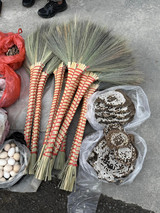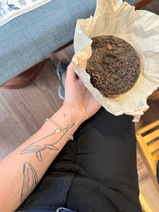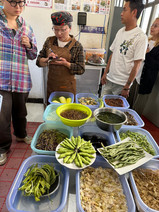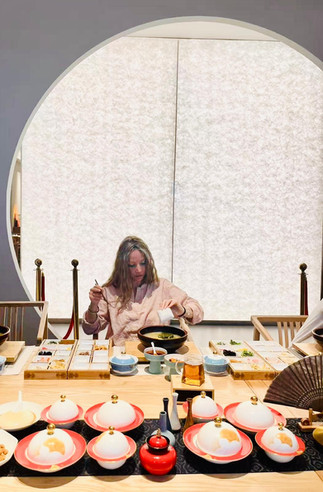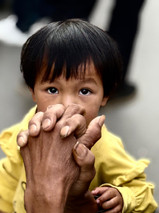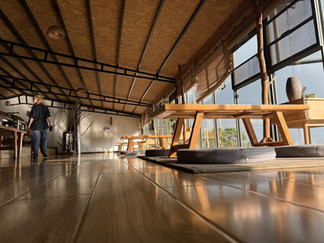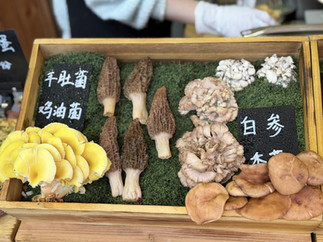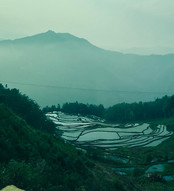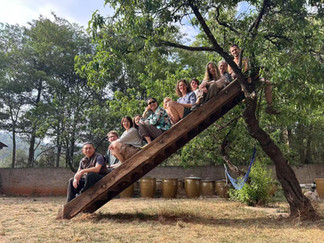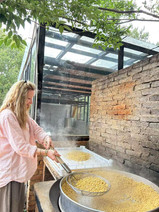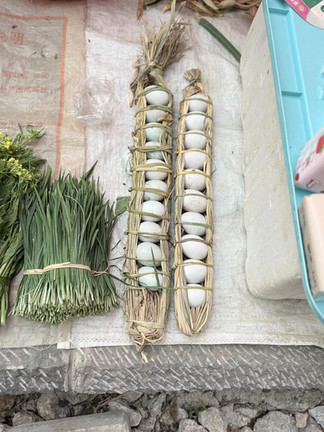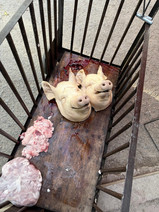CLOUDWALKERS
- Aleksandra

- 20. Mai 2025
- 2 Min. Lesezeit
Aktualisiert: 9. Okt. 2025
South of the Clouds: April of Tea, Food and Fermentation in Yunnan

Some journeys unfold like leaves in hot water – slowly, fragrantly, with layers of hidden complexity.
My April in Yunnan was exactly that. A journey through mountains and valleys, and through the senses onto the tongue, deep into the nose, across the palate, and, finally, into the heart.
As a student training to become a Tea Sommelière - and as someone whose life orbits around food - this wasn’t simply a holiday.
Yunnan - the very name feels like a sigh, doesn't it?
In its mist-draped hills, ancient Camellia sinensis trees still grow, gnarled and defiant, some over a thousand years old. We drank their leaves in Xigui, where tea tastes of earth and rain. We wandered through the Gu shu tea gardens.
One morning, we climbed the Cangshan mountain, to dine at an ancient Temple. Other morning I tasted wild black honey and bee larva straight from the hive - viscous, almost musky, with a richness that seemed to hum in the chest.
Yunnan is not only tea - it is smoke, heat, tang, and crunch. It is Nuo Deng ham aged for two years in mountain air. It is soy sauce dark as molasses, fermented in step with the sun. It is the bite of fermented broad bean, the greenness of wild spring herbs, the silky chew of red rice noodles that wind and curl in steaming bowls. It's medicinal hot pot in Pingbian at the end of our journey.
I was travelling with a small, wonderful crew - a band of chefs, artists, flavour-hunters. We talked about fermentation and philosophy in the same breath. We laughed over street food, sipped tea in silence. And Jianing was crushing nuts.
This was not a sightseeing trip, but an immersion into the meaning of flavour. Into the stories leaves, herbs, meat and vegetables tell. Into what a grain of rice can say about a people, a place, a century. I think of the hands of Hani women dying rice with local plants. I think of the moment a Yiliang duck is pulled from the wood-fired oven, glistening, crisp-skinned, fragrant with star anise and time it took.
These two weeks taught me more than a dozen books could. About taste. About patience. About the poetry of a steaming pot in a mountain village. About the silence between two sips of tea.
I came home with leaves, salt and honey in my suitcase - but most importantly, with a new vocabulary on my tongue.
Thank you to Yi, Hui, Yuhang and Jonas — for guiding us with such warmth, clarity, and deep affection for your homeland. For translating not just the flavours of Yunnan, but the feeling of it - the pulse behind the tea, the story behind the smoke. You brought us into kitchens and gardens and homes, not as guests, but as friends. With each meal, each cup poured, you invited us to listen a little more closely — and taste a little more deeply.





